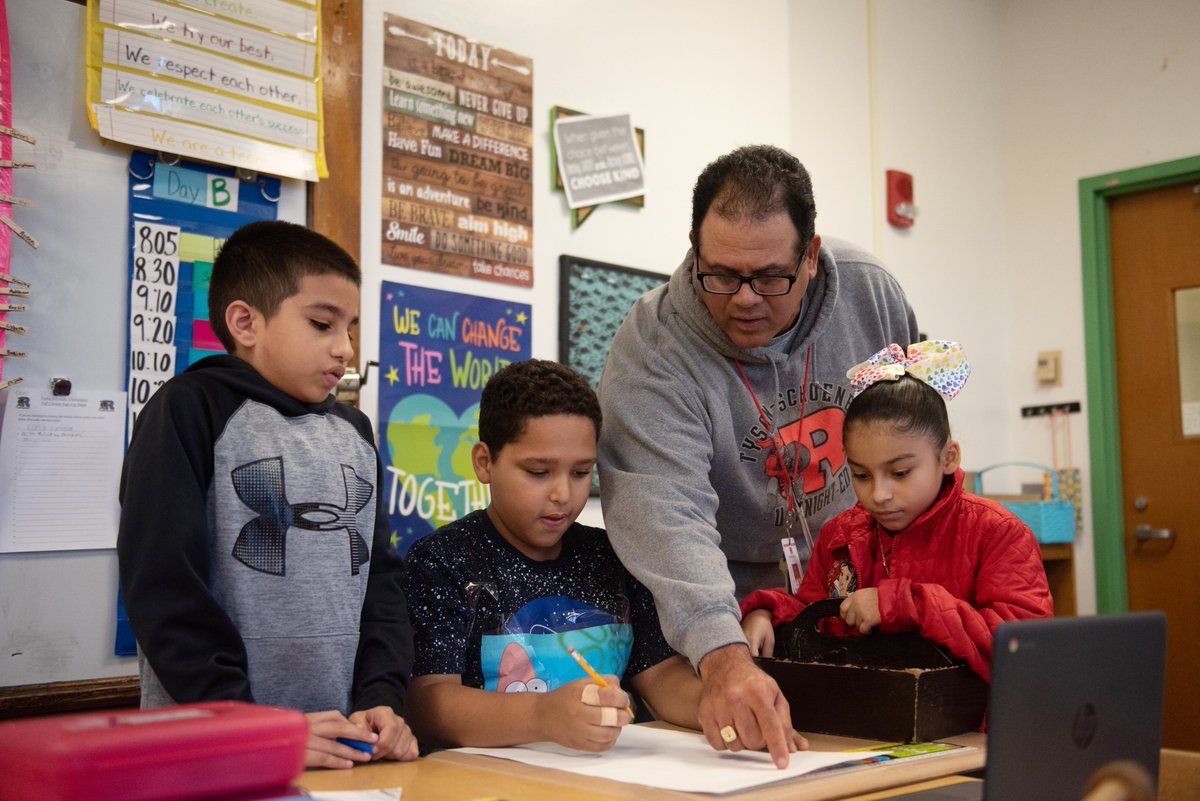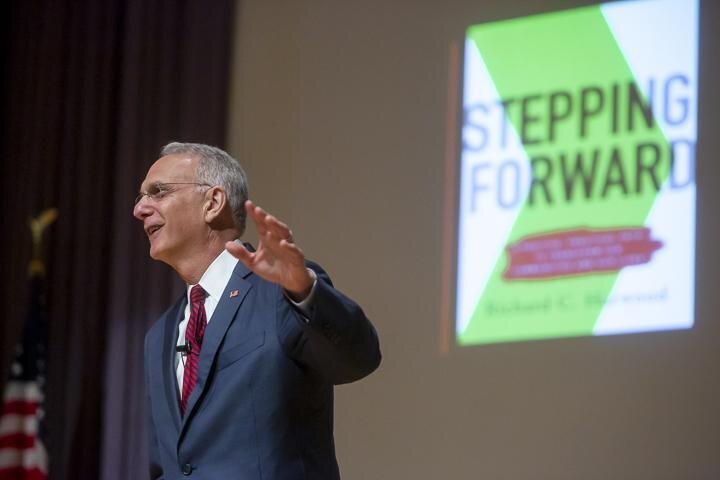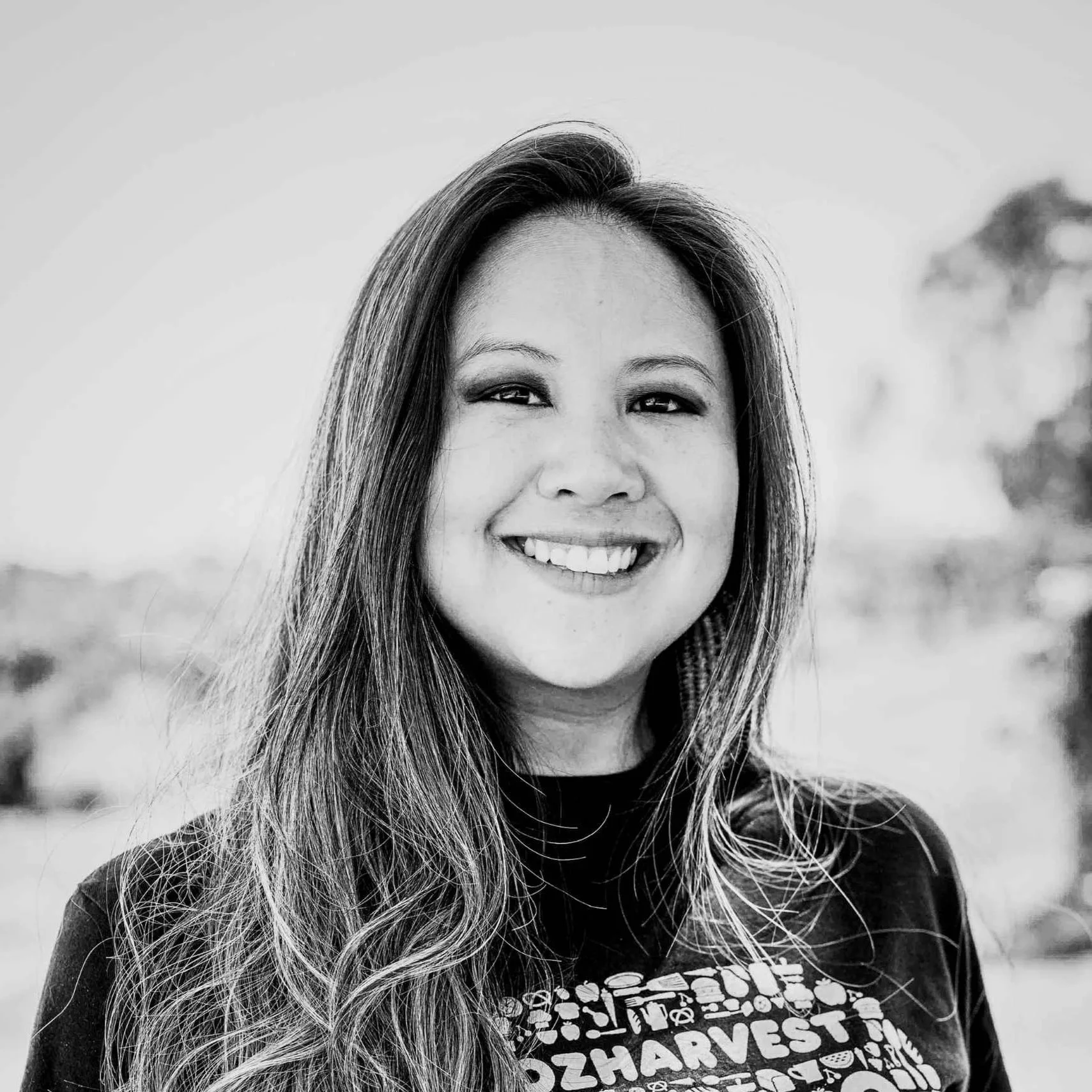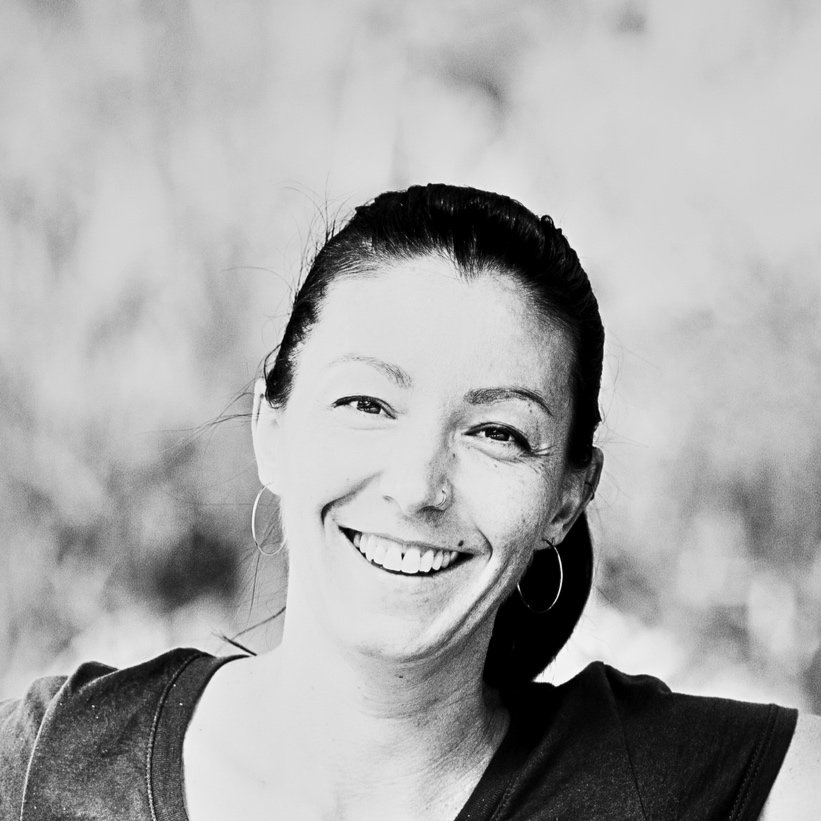Rich Harwood On Future Opportunities For Communities To Cooperate & Apply Innovative Practices
Rich Harwood is the President of The Harwood Institute for Public Innovation, a national nonprofit organisation that teaches and coaches people and organisations to solve pressing problems and change how communities work together. The Harwood Institute is based in Bethesda, Maryland.
For over 30 years, Rich Harwood has devoted his career to revitalising the nation’s hardest hit communities, transforming the world’s largest organisations, and reconnecting institutions to society. He has developed a philosophy by which people can learn to solve common problems, create a culture of shared responsibility, and deepen Civic Faith. The Harwood practice of Turning Outward has spread to all 50 US states and is being used in 40 countries.
Rich is an inspiring and sought-after speaker. He has written six books including the newly released, Unleashed: A Proven Way Communities Can Spread Change and Make Hope Real for All. He has authored scores of articles and reports, most recently the groundbreaking Civic Virus: Why Polarisation Is a Misdiagnosis, and frequently appears on national media, including NPR, MSNBC’S Meet the Press Daily, CNN, PBS NewsHour, and more.
Rich discusses Future opportunities for communities to facilitate progress through innovative businesses and social change organisations.
Highlights from the interview (listen to the podcast for full details)
[Indio Myles] - To start off, could you please share a bit about your background and what led to your work in social enterprise?
[Rich Harwood] - It started when I was very young. I was a really sick child, diagnosed with cystic fibrosis when I was under one years old. In the early 1960s, that was a death sentence. You were predicted to live five years, and at one point the doctors turned to my parents and said, “face it, he's a lemon.” In that experience of being sick, I learned really quickly what it feels like to be invisible, to not be seen and heard, to be chewed up by a medical system that's intending to actually heal you but did more harm than good. I lost my sense of dignity really early on and struggled for many years to regain my health. That experience has sat with me all these years. Building on that, I worked on 20 campaigns by the time I was 23 years old. For the last one I was an aid to a US Presidential Candidate. I worked for a couple of non-profits I think did wonderful work, but what I felt was that too many groups were (and still are) afraid to get dirt under their fingernails and do the hard work that really requires and brings about change.
All of these things conspired in a positive way and lead me when I was 27 years old to start The Harwood Institute with the belief we need new ways to imagine and create change moving forward. It needs to be rooted in affording every individual dignity, that each and every individual needs to be provided opportunities to reach their potential. Here in America, each and every individual needs to be able to participate and co-create America's promise. In Australia, you might say that everyone should be given a fair go. All of these things have led me to this place. The last thing I'll say is there's not a day that goes by when these memories of what brought me here don't inform the choices, judgements, and actions I'm taking.
As President and Founder of The Harwood Institute for Public Innovation, can you share the organisation’s core purpose, values, and activities?
We're really interested in answering how do you build bridges in a time of such division? How do you create a culture of shared responsibility in communities, and how do we make communities a genuine community enterprise, where no one is left out and left behind. This is where we're pulling together with common purpose and direction; really marshalling our common and shared resources. That's in essence what we're seeking to do. We think (increasingly) we're facing challenges of deepening fault lines in our society, whether it's here in the States or other countries, and a weakening civic culture. We need to take action that brings those two pieces together so we're both, as some would say in social innovation:
MOVING THE NEEDLE ON THE CHALLENGES WE'RE FACING AND REBUILDING, STRENGTHENING, RECONSTITUTING, AND REIMAGINING WHAT OUR CIVIC CULTURE NEEDS TO BE WHEN OUR SOCIETY IS BECOMING INCREASINGLY DIVERSE AND CHALLENGING.
We have three strategies we're pursuing in this work. Our strategies have evolved every five years as our work has. One strategy is that we're going really deep into a handful of communities to help demonstrate we can, as individuals and communities, address these fault lines and rebuild our civic culture at a time of immense resistance, right? We can unleash this great network we've been fortunate enough to help build both here in the United States and other countries, of public innovators, and how do we enable people to step forward and do this work in ways that they can adopt and adapt this practice we've developed and make it their own without us? This is without us monetising and claiming ownership of it all the time. Sometimes, they're peeling our brand and our name off and reconstituting with other things that they're doing. It's fantastic! It's the best thing that can possibly happen.
Thirdly, we've been committed since the day I started this and all throughout the last 30 years to continuing to do research and innovation, because we're constantly learning every single day. In fact, just today we released a new approach and tool that we're going to be spreading to this network we work with, in terms of how to create shared responsibility in communities. Each and every day there's new learning and innovation that really continues to excite me.
Throughout your career at The Harwood Institute, what have been some of your biggest learnings to date?
If I was passing on insights to someone starting their own journey, what I would say is to firstly pick up the word you just used Indio, which is if you're really interested in social innovation, social impact or making a contribution to the world around you, no matter how big or small that contribution is, you have to come to some clarity that this is a journey in and of itself. This is a journey of learning; it's a journey of trial and error, getting knocked down and getting back up, having to have incredible resilience and persistence, and get up and go. It's a journey of being awake many nights and wondering what is going on with this work you’re doing, and why isn't it working right now? What does it mean to recalibrate these efforts and not hold on so tightly to what you've created, that you're unwilling to see what you need to create moving forward that might be different, that is in fact different than what you've done in the past.
I think that journey requires courage to put a stake in the ground about what you believe and what you want to work on. It has to be something you’re willing to stake this journey around.
IT ALSO REQUIRES AN INCREDIBLE AMOUNT OF HUMILITY TO KNOW YOU DON'T HAVE THE ANSWERS. THE ANSWERS YOU'RE GENERATING ARE EVOLVING ALL THE TIME, and YOU'RE GOING HAVE TO PICK UP YOUR STAKE IN PUBLIC WHEN YOU REALISE YOU HAVE TO RECALIBRATE YOUR EFFORTS AND MOVE IT TO A NEW PLACE.
You will be required to take your best guess based on what you’ve learned, evidence you’ve gathered, intuition you have, and beliefs that you hold. You will have to place that stake in a new place and everyone’s going to see you do that. To me, that’s a good thing. Lastly, what I would say is you have to be willing to be vulnerable. This work that we all do and share in many respects does require toughness and courage. It requires just as much, if not more vulnerability, to join with others, to recognise you don't know everything, to recognise that sometimes you're hurting, and that this work is really difficult. That vulnerability is really necessary if you're going to move forward and grow as an individual, and if you're going to be willing to reach out and grow with others as well.
Looking into the future, what are some of the most pressing issues and challenges you foresee arising for individuals seeking to create social change?
It's interesting because there are so many things as you were asking that question that went through my mind. Where my mind goes right now is that so many of our institutions, styles of leadership and networks are not equipped for the challenges we face. Much of our time, we have these obsessions with metrics (which I think are important). We have obsessions with raising money, scaling, our own strategies, and all of these things lead us to being inward looking. When we're not careful, they lead us farther and farther away from the very communities, challenges, and indeed aspirations that we seek to serve, animate, and make real in the world.
some of the challenge is how do we imagine and begin to create and build organisations, institutions, leadership styles and networks that are open to the challenges we face?
These organisations are truly turned outward toward communities, which are willing to experiment and not believe they always have to have the answer, even though we do need to have evidence that our work does work. I really do believe we need to not worry so much about scaling all the time, as if you can flip a switch and that occurs, but think more about how we spread things more like a positive contagion in society, where we're not pushing things so much, but people are pulling us toward them because they believe in what we were doing and how we're going about it.
The last thing I would say is, we tend to focus so much on what we do, and increasingly as I've gotten older in these 30 plus years I've been doing this work, I've come to believe that how we do the work is as important as what we do, particularly now given the challenges we face not just in the States, but in Australia and places like Sri Lanka.
I know this is true in countries around the globe, and it's true particularly here in the US, we face a crisis of belief, belonging, and community in society, particularly democratic societies. What I think we need to keep in mind is what really is the goal here? Is it to create the next best thing? For me, it's really to help engender a greater sense of belief in ourselves and one another, that we can actually come together and get things done. It’s to engender a greater sense of belonging in society and a greater sense of what we would call at The Institute civic faith in our ability as a society and common enterprise to do things, for people to find a place and to have a place within those societies. One of the things we have to really keep our eye on is that we're working towards something much larger and more important than anything that any of us can develop ourselves. That to me is really critical, particularly at this juncture of history in which we're all living in and trying to move forward.
Where are there opportunities for governments and large businesses to foster innovation in the communities they co-exist with?
We're working with one of the largest companies here in the States that has facilities all across the United States and the world. It's interesting because they have a very active corporate social responsibility program, but what they've come to realise is they're not creating any social impact. They're not laying the groundwork for any social innovation. One of the things I really admire in this particular company is they have decided to really examine their assumptions about how they invest in communities, not just their dollars, but their expertise, resources, credibility, relationships, and how they can use those assets to help spark and catalyse change in these communities. This is in ways that is not just brand positioning for this corporation, but it is actually creating healthier, thriving communities in which these corporation's employees live and want to grow their families and hopefully even retire in. They want to make sure their children stay in these communities when they graduate from high school or college and want to make a life there. Lots of large corporations can be thinking about the relationship they have with society, yes, to make money and provide value for their shareholders, but also to provide value for society itself by using their assets to do that in ways that sit at the intersection of who they are as a brand, what their mission is, and how they can contribute to society by aligning those things. I think it's possible and we're seeing it happen.
What inspiring projects or initiatives have you come across recently creating a positive social change?
I just got off a call with people in Reading, Pennsylvania, which is a town that 10 years ago was declared the poorest community in America. It was a white working-class community and is now 65% Hispanic, and before people think that's homogeneous, it's folks from 5-7 different countries, that all have different dialects, heritage, history, and customs. It's actually more diverse than ever before. At this time (at least in the States), where we have been enveloped by debates in education about what's called critical race theory, banning books in schools, upheavals on school boards; nasty debates about whether or not kids should wear mask in classrooms because of COVID-19, this community at the very same time because of fundamentally different conditions created an educational equity agenda for their community. They not only created that agenda, but local funders came together and said to a national funder in India, “we don't want your national money, we want to fund this locally.” They funded this social impact innovation initiative. It's the largest initiative they've ever funded, and not only did they do that, but now they have all these folks developing into innovators, forming action teams and taking action on three priorities in the community, to ensure that every young person can fulfill their potential and be, in this case, part of America's Promise.
I'm so inspired by the work these individuals and groups are doing, not because they happen to be working with The Institute, that's the least of it. It's because they decided to step forward, push away all the negative narratives about their community coming in from the outside, marshal their collective resources (which aren't a whole lot by some measures, but are enormous by their own measures) and actually set out and create change in real ways. I just find that so incredibly inspiring, I've been doing this work for 30 plus years, and I still get goosebumps when I listen to the progress that people are making, the faith that they're growing in themselves and in one another. They actually can be part of creating the change they want to see in their own lives and community. I still find it remarkable.
There's some stuff on our website about it, but this is another thing, they don't have a name, any letterhead, or phone number. It's just different groups that have come together to take shared action, innovate together and produce real impact in people's lives. They're tossing away all the things I was talking about before that get in their way. People often think these things have to look, sound or be a certain way, and I just have so much admiration for the folks who have stepped forward to do this.
To finish off, what books or resources would you recommend to our listeners?
I will talk about a couple of few books I just finished reading. I'm really interested right now in the intersection of how communities can move forward through trauma, loneliness and mental health. These are all undercurrents in our work wherever we go now. To an earlier question you asked, they are increasing undercurrents that need to be addressed. One book I just finished that I think is really remarkable is called Healing by Dr. Thomas Insel, he's the former Head of the National Institutes for Mental Health (in the States). It's a really good book, in part because he talks about the three P's, People, Place, and Purpose, and says that all the professionals in the world can't solve the mental health crises that we face. It takes people, a commitment to a place, and purpose in people's lives. Those are all things we can create together along with mental health professionals.
A second book I would recommend is called, Self and Soul: A Defense of Ideals by Mark Edmundson, a professor at Princeton University. It's just a wonderful, accessible book, an is really for people trying to create a social impact. It's a book about journeys and how we imagine ourselves on this journey. Is it simply about ourselves, or is it something larger about our souls and connection to others? How do we comport ourselves into the world as we make our way through this journey? It's a great book for folks in the social impact world. Lastly, what I would say, just because it's fun, is reread all the Harry Potter books. I love fables, they're really instructive to people on journeys, and I read them with my kids when they were younger. Now they're grown up, and I still find them equally inspiring, with new insights now as an adult.
Initiatives, resources and people mentioned on the podcast
Recommended books
Healing: Our Path from Mental Illness to Mental Health by Thomas Insel
Self and Soul: A Defense of Ideals by Mark Edmundson









